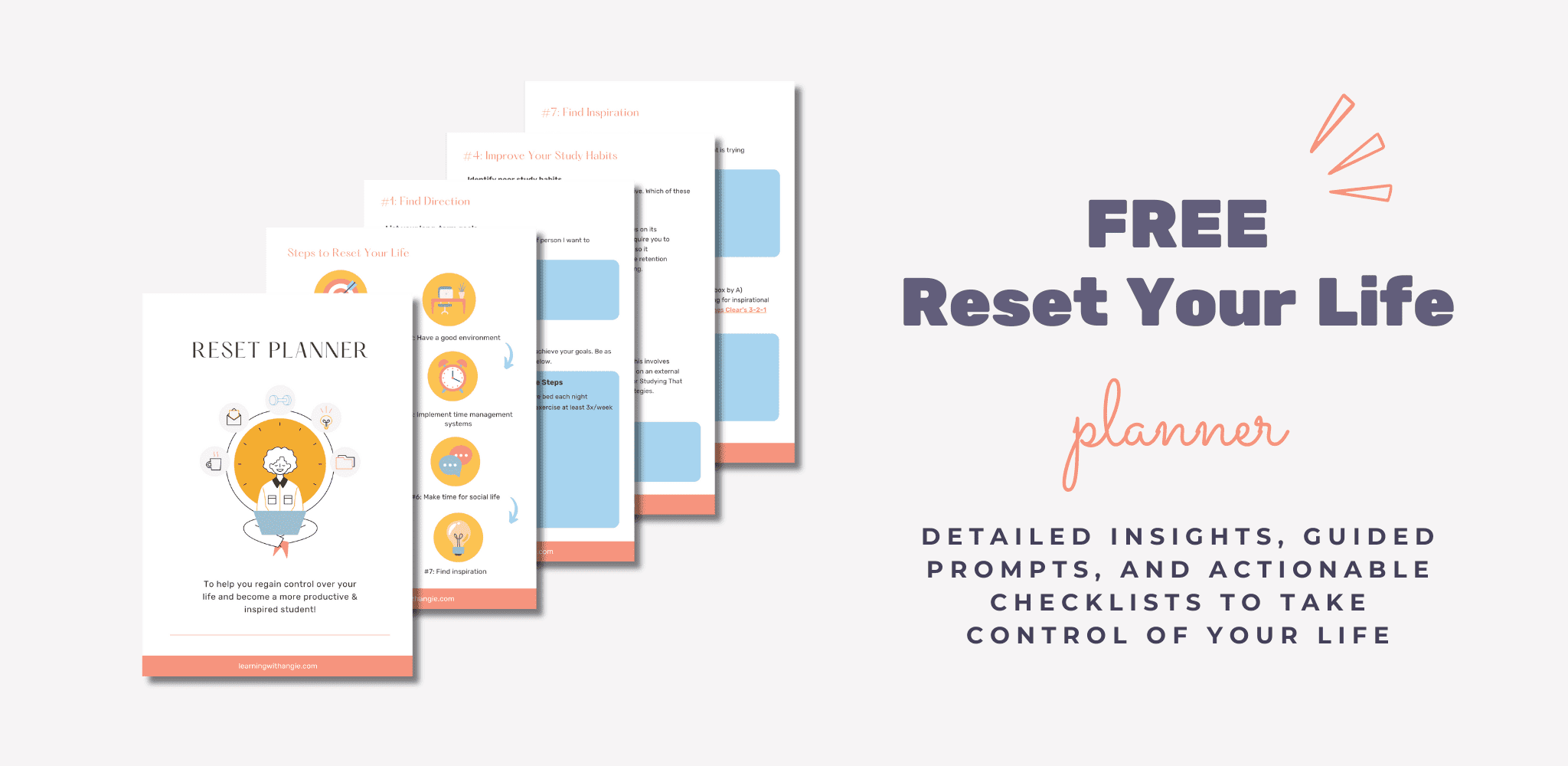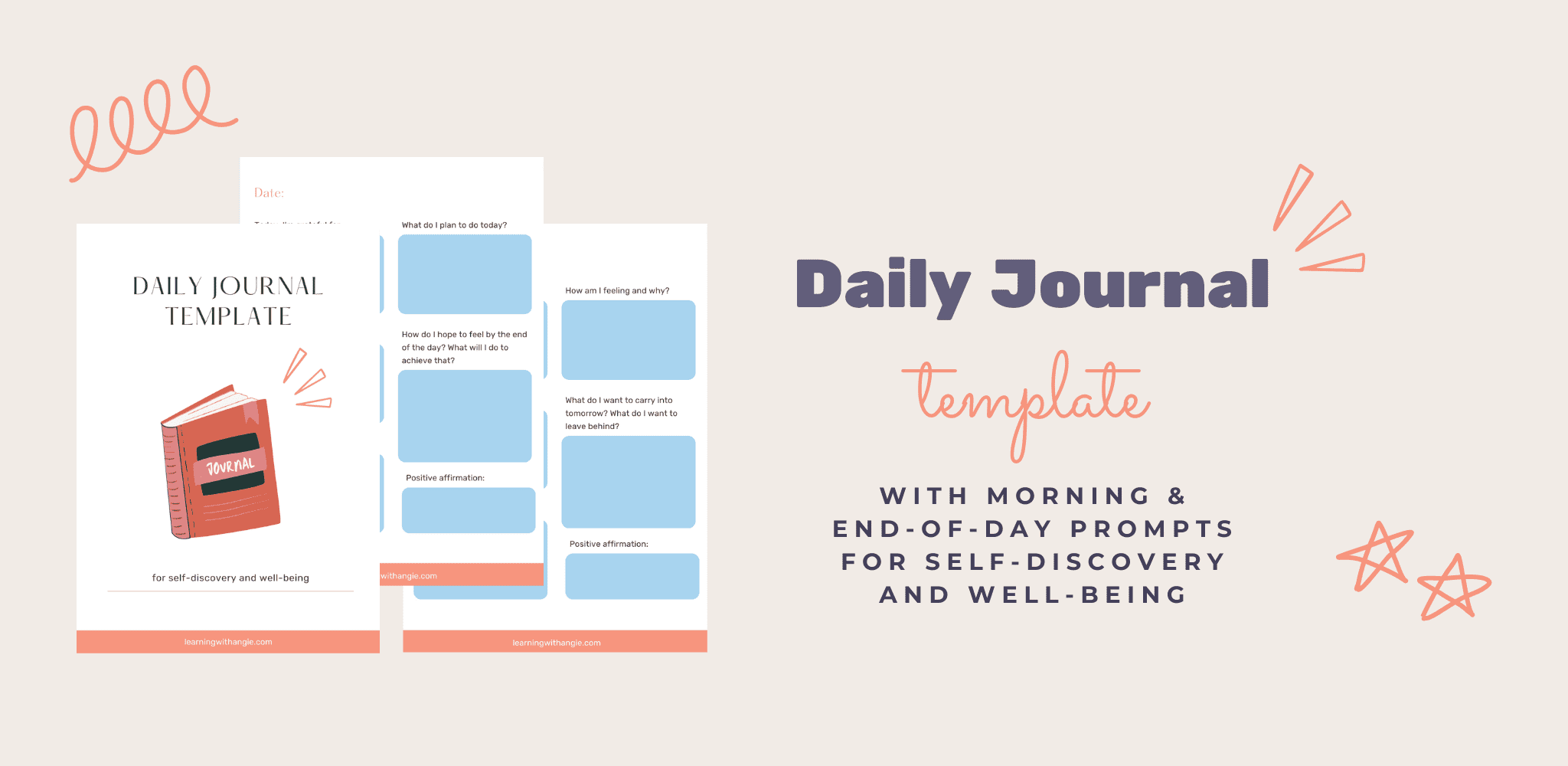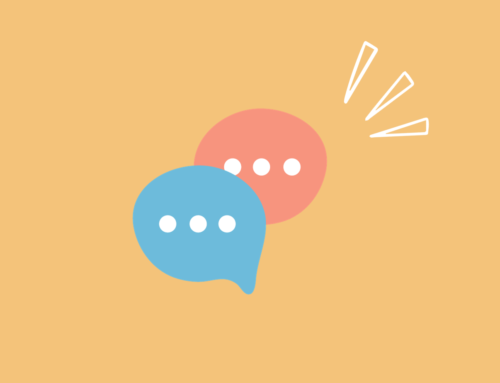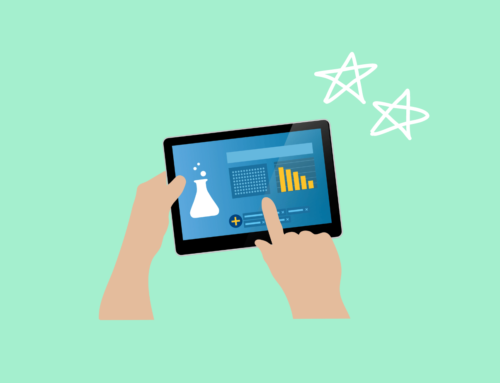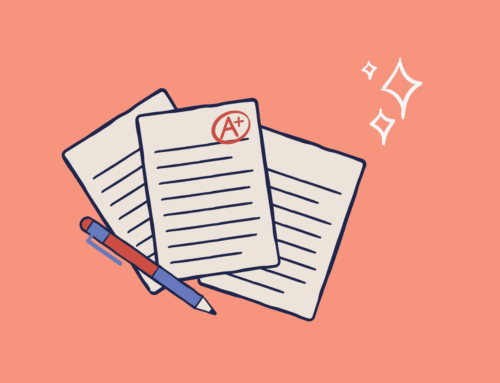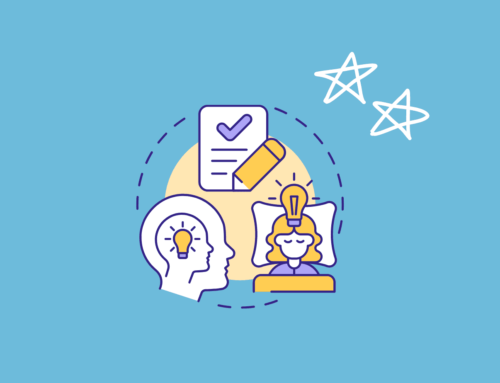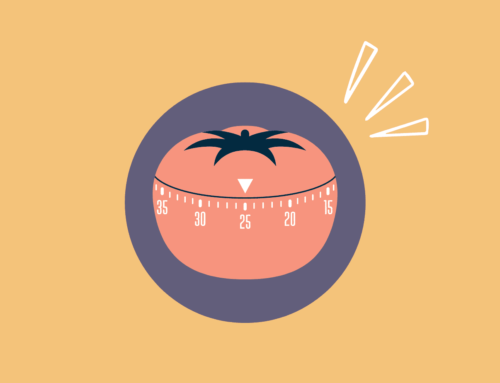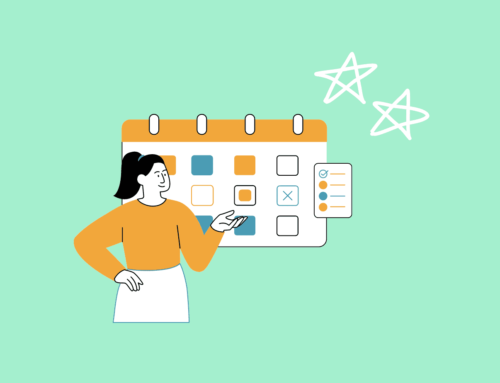

The initial excitement of starting a new school year has waned away.
The school supplies you bought at the beginning of the year are no longer interesting. Schoolwork has become a mundane daily routine that you dread.
You often stay up late to complete an assignment you procrastinated. When you need to get work done, you find yourself distracted by your phone or the TV instead.
But you clicked on this post because you want to know how to get your life together as a student.
And that’s the first step towards getting your life on track again!
By the time you reach the end of this post, you’ll know how to:
- Regain motivation
- Become more productive
- Prioritize your physical and mental health
- Be a more inspired person daily

You may be wondering now, “Who am I to be telling you about all this?”
Well, not so long ago, I was in the same place you are now—unmotivated, uninspired, and completely lost about how to find direction again. I had a severe case of senioritis.
However, I didn’t like being unproductive and lost. I quickly discovered that spending my time doing nothing was unfulfilling and frustrating.
Therefore, I decided to take action to get my life together again. In this post, I’ll be sharing EVERYTHING I did to rekindle my passion and motivation so that you can too. (Also you can grab a free life reset planner that provides guided prompts and detailed checklists to help you implement the tips in this article!)
Let’s jump in!
This post may contain affiliate links, which means that when you make a purchase through a link, I make a small commission at no extra cost to you.
Finding Direction
You probably feel unmotivated due to a lack of direction. At this point, you’ve fallen into autopilot—you go to school, do homework, study, and repeat.
But none of it feels meaningful.
Finding direction is about identifying goals that are worth working towards. Goals that drive you to get up each day with purpose.
So how can you find direction in your life?
Identify Your Long-Term Goals
To get your life together, you need to make a list of your long-term goals.
Ask yourself, “Who do I want to become?” This will help you identify what your goals should be.
For example, your goals could be to become healthier, more knowledgeable, and more productive.
Determine How You Will Achieve Your Goals
Having a nice list of goals is good, but as we all know, it’s pointless unless you come up with a plan to achieve them.

After making your list, you need to identify what you need to do to achieve your goals. Remember to set realistic, actionable steps. Trying to overhaul your entire routine at once is unrealistic and unsustainable.
For example, if you want to become healthier, you may start working out 3-4 times a week. In the beginning, you set the goal of 15-20 minutes of moderate exercise daily. As you get used to exercising, you plan to increase the duration and frequency that you exercise.
If you want to start reading more, you may plan to read 10 minutes a day at first. As you get used to reading daily, you plan to increase the duration that you read.
In short, it’s always important to start small when building new habits.
Envision Yourself as the Person You Want to Become
We often set goals for ourselves, then become unmotivated to achieve them due to the temptation of immediate gratification.
For example, you know you have a test to study for. But instead of studying for the test, you pop open a bag of popcorn and rewatch Wednesday Addams on Netflix. Instead of making the choice that would benefit your future self, you make the choice that satisfies your present self.
How can you avoid this? By visualizing the rewards that your future self will experience if you make good choices now.

Instead of giving in to the temptation of Netflix, envision yourself acing the test without sleep deprivation because you didn’t procrastinate studying.
When you feel unmotivated to work towards your goals, visualize being the person that you envisioned when answering, “Who do I want to become?”
Having a Good Physical Environment
Your physical environment affects your mental health in important ways. Clutter and loud noises both contribute to anxiety.
Therefore, it’s extremely important to have a physical environment that is conducive to your mood and productivity.
Fortunately, there are a few simple steps you can take to create a good physical environment.
Clean Your Study Space and Room
Take some time to organize your study space and room. (Notice that your study space and your bedroom should be separate areas. I explain why this is so important later in this article.)
Throw away and donate things that you no longer need. Disinfect surfaces and vacuum the floor. Buy organizers to reduce clutter.
Check out this post for more student desk essentials to keep your study space clean and organized.
Add Uplifting Personal Touches
To make your personal spaces somewhere you enjoy being, you should add positive elements. These include:
- Pictures of fond memories
- Aesthetic stationery
- Candles
- Any other small trinkets that bring you positivity
Keep Your Study Space and Bedroom Separate
If you don’t have a space in your living situation uniquely designated for studying, you should. This is because our brains make subconscious associations between physical space and action.
If you do things like scroll through social media or watch TV (or sleep) where you study, then you’ll be more tempted to do those things while studying.
If instead you have a unique space designated for studying, your brain will automatically associate it with productivity and work.

Time Management
Time management—our ultimate as students. One moment, it appears that we’ve conquered it. But another moment, it’s slipped away again.
The good news is that there are some simple strategies you can use to manage your time effectively and consistently.
Get a Planner
If you want to get your life together as a student, you MUST have a planner of some sort. As humans, we’re good at coming up with ideas but bad at remembering them.
If you don’t have a place to write down your tasks and ideas, you’ll forget them very quickly.
Also, it’s important to have a planner that excites you and is convenient to use. Your planner should make planning and checking off tasks somewhat fun.
If you enjoy using physical planners, here are a few I recommend:
Apart from traditional physical planners, bullet journaling and student planner apps are also quite popular. (I prefer these methods to traditional planners because I find them to be much more flexible.)
I bullet journaled for many years, and I have a post to help you decide if bullet journaling is right for you.
Currently, I do all my planning as a student in one app—Notion.
Either way, it’s important to find a planning system that you enjoy (but also won’t cause you to spend more time planning than doing the things you planned—I may or may not be speaking from personal experience).
Time Block
I talk about time blocking frequently, but that’s because it seriously has transformed my life as a student.
If you’re unfamiliar with time blocking, it involves designating specific time chunks to specific tasks. For example, you could designate 3pm-6pm on weekdays for studying. (See this post for a complete guide to time blocking as a student.)
When you see times blocked out for certain tasks, you’re more likely to do those tasks.
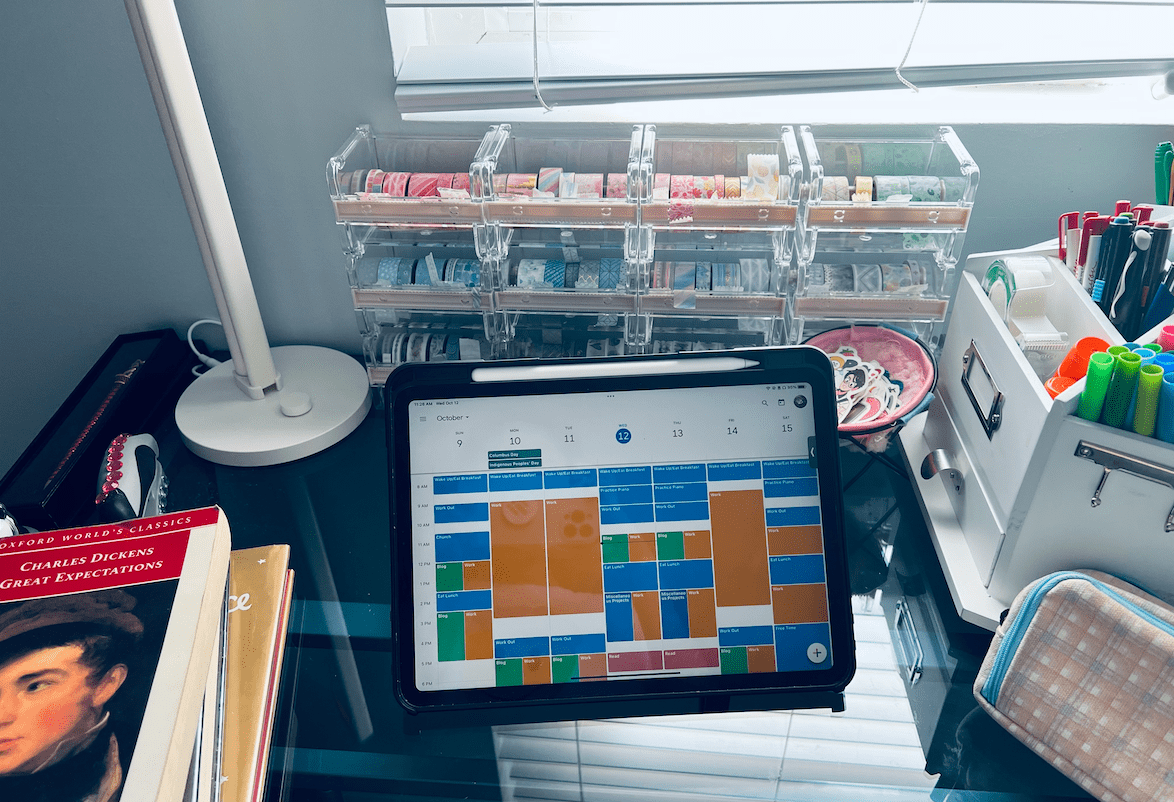
Before I started time blocking, I was a bit skeptical. The idea of creating a schedule of rigid time blocks seemed constraining to me.
However, I’ve since learned that time blocking, when used correctly, is quite flexible and freeing.
It’s flexible because you can adjust your schedule whenever you think it doesn’t suit you (after all, you’re the one who created the schedule in the first place). Since I’ve been time-blocking for months, I’ve learned to create a schedule that suits my energy levels at different times of the day.
It’s freeing because by assigning time chunks to my tasks, I know how much I can accomplish. Since I have everything planned out ahead of time, I don’t have to stress about not having enough time to get to something. Also, I can avoid making unrealistic to-do lists.
Make To-Do Lists Ranked by Priority
I recommend making a to-do list for the next day at least a day in advance. This way, you start each day with a clear sense of purpose.
Additionally, you must rank to-do lists by priority. If you don’t, you’ll likely do the tasks that are easiest first. As a result, you’ll keep procrastinating tasks like “start research paper” until the last minute.

I swear I had this on my to-do list for the past 6 weeks and yet here I am…
I also suggest marking one task as absolutely necessary each day. For example, if you know you need to start your research paper, mark that as the one task you MUST complete today.
Once you get that task completed, you’ll find that getting to the other tasks on your list is not so hard.
Cut Out Digital Distractions
Digital distractions are one of the biggest enemies of time management.
When studying, put your phone in another room. If you need to study on a device, try installing apps that block distracting websites or applications.
See this post for simple and effective strategies to stop getting distracted by YouTube while studying (these strategies can be extended to other digital distractions).
Studying
Speaking of studying, an essential part of getting your life together as a student is evaluating your study strategies.
How you study plays a major role in the grades you earn. Poor study strategies can cost you greatly, while effective study strategies can benefit you significantly.
In fact, the proper study strategies can even help you ace a class you don’t like or think you’re bad at.
Eliminate Poor Study Strategies
There are some common but ineffective study strategies that everyone should avoid. These include:
- Rereading notes or the textbook (contrary to popular belief, this does not improve retention or understanding)
- Highlighting/underlining (unless you want to bring attention to keywords and concepts that you need to review; it’s not a productive revision method on its own)
Experiment With Effective Study Strategies
Not everyone learns the same way, so you may not enjoy certain study strategies that work for other students. Therefore, it’s important to experiment with different study strategies.
For example, you can try studying with flashcards for one test. Then, for another, you can try creating mind maps. And so on.
However, at the end of the day, there’s one characteristic that ties all effective study strategies together. That magical ingredient is active recall.
Active recall involves pulling information from your head instead of from external sources.

When you reread your notes, you’re not pulling information from your head. But when you use flashcards or create mind maps, you’re forcing your brain to recall information and make meaningful connections.
Active recall probably doesn’t sound easy, and it shouldn’t be. When you do active recall, you should feel like you’re making the gears in your brain turn.
Try Studying On Your Own or With a Group
There are various benefits of studying on your own and studying with a group.
If you’re used to studying in a group, try studying on your own. There are several benefits of studying alone, including improved focus.
If you’re used to studying on your own, try studying with a group. This can make studying more fun and help you make new connections in the information you learn.
Take Advantage of the Multitude of Resources
Nowadays, information lies at our fingertips. Take advantage of that accessibility.
If you’re confused by a topic, try learning it another way. Watch YouTube tutorials or read a step-by-step article.
Or, invest in a good-quality review book.
Don’t Be Afraid to Ask for Help
If you’re scared to ask for help, remember that you’ll probably regret not asking for help, but you won’t regret asking for help.
If you’re confused about a subject, ask a classmate who understands the subject to explain it to you. Or, attend extra help/office hours.

Health
As students, it’s often easy to get so caught up in work that we neglect our health.
I know this because when I was busy with schoolwork in the past, I would compromise my health. I would (try to) study for long sessions without breaks. I would hardly sleep 6 hours a night.
However, since then, I’ve realized that taking time for personal health boosts my mood, energy levels, and productivity significantly.
Here are the steps I’ve taken to take care of my physical and mental health:
Start Working Out
Working out has several immediate benefits, including elevated cognitive function, mood, and energy levels. After a workout, I always feel more energized and ready to tackle the next task.
Working out also has several long-term benefits, such as improved physical strength and reduced risk of Alzheimer’s and other diseases.

The CDC recommends 150 minutes of moderate-intensity exercise per week. However, if you’re just starting, you don’t need to fulfill this recommendation immediately.
Instead, gradually increase the length of your daily exercise session.
Right now, you may also be wondering, “What can I do for exercise?”
The good news is that even if you don’t have access to a gym, there are plenty of options for daily workouts. YouTube is filled with free workout plans and individual workout videos.
Every day, you can switch up your workouts to keep things fun and make sure you’re targeting different muscle groups.
Eat Healthier
It goes without saying that what you eat affects your health significantly. Therefore, it’s important to actively select nutritious foods.
Here are some quick tips to eat healthy as a college student.
For me, the most beneficial diet change has been limiting the intake of sugary foods. This year, I’ve taken several breaks from added sugar entirely. These “sugar withdrawals” reduced my sugar cravings and improved my energy levels.
I did this because I saw so many sources talking about sugar acting like a drug in our brains. Once you start eating it, it becomes hard to stop. However, the terrible part about sugar is that it holds no nutritional value.
Take Breaks
Taking breaks while working is extremely important. According to this source, it:
- improves your memory
- boosts your energy
- lowers stress levels
- benefits your health
- improves performance and creativity
In the past, I would often (attempt to) study for several hours and become mentally exhausted fairly quickly.

However, I now actively take breaks to mentally recharge. After a break, I feel refreshed and can often approach a problem that stumped me before from a new perspective.
There is a catch, however.
You must take wise breaks. This means avoiding things like using your phone or watching YouTube, which could drag you into a rabbit hole.
Instead, do things to improve mindfulness and/or your energy levels. This includes meditating for a few minutes, going for a short walk, or stretching.
Have a Solid Sleep-Wake Routine
When busy with schoolwork, it’s extremely easy to neglect the value of a good sleep-wake routine.
However, getting enough sleep is the best thing you can do for your mental and physical health.

Contrary to popular belief, sleeping in on weekends doesn’t replenish the lack of sleep during the week. Sleep debt accumulates, and it can take up to 4 days to eliminate 1 hour of sleep debt.
Not getting enough sleep negatively affects your cognitive functioning, so you’re more prone to make mistakes in everything you do.
Additionally, it’s extremely important to go to sleep and wake up at the same time every day. Doing so keeps your body’s circadian rhythm in sync. If your circadian rhythm is out-of-whack, you may experience a myriad of consequences, including reduced productivity, fatigue, and poor mental health.
Start Journaling
Journaling has many benefits, including improving academic performance and mental health.
In the past, I tried (unsuccessfully) to start journaling several times. After modifying my journaling methods, I’ve been able to be much more consistent.
(Click here for my quick tips on starting a journal for self-growth.)
Journaling helps me track my progress, organize my jumbled thoughts into words, and have greater clarity in my life.
Social Life
If you’re an introvert like me, you may find it easy to neglect socialization when school gets busy.
However, interacting with others is extremely important. According to this source, it reduces stress, improves health, and of course, helps you build meaningful connections with others.
To improve your social life, you can take these simple steps:
Spend Time With Positive People
The people you spend the most time with have a significant influence on your habits and mindset. Therefore, it’s important to spend time with people who inspire you to become a better student and person all around.

If you spend time with students who are constantly complaining about school, then you’ll develop a negative attitude as well (trust me, I’ve been there before).
But once you start hanging out with motivated, optimistic students, you’ll become more motivated and optimistic yourself.
Attend a Club Meeting or Other Social Event
Attend a meeting for a club that interests you. You may find a group of people that you click with.
Also, schedule other social events occasionally. Go out to eat dinner with friends or attend a concert.
Do Community Service
According to this publication in the Journal of Happiness Studies, volunteering makes people happier.
Serving your community is essential to living life to the fullest.
According to former monk Jay Shetty, it connects you to others, increases your gratitude, increases your compassion, and builds your self-esteem.
There are many options to get involved in community service. You can do things like:
- Join a musical performance group for hospital and senior care home residents
- Help out at an animal shelter
- Tutor low-income/minority students
- Host a donation drive for a non-profit organization
- Volunteer at a soup kitchen

The people you meet and the positive difference you make will be truly rewarding.
Becoming Inspired
If you want to get your life together as a student, it’s important to find novelty in your daily life.
Right now, each day probably seems mundane and tedious. You wake up, attend classes, take tests, study, and repeat.
Luckily, there are a few simple steps you can take to become more inspired every day.
Try Something New
If your life has seemed stagnant and directionless lately, it may be a signal for you to try something new.
For example, you could learn a new skill. Nowadays, with the abundance of resources on the Internet, it’s fairly easy to learn something new any time you want.

In fact, I had the idea of starting this blog because I was browsing the Internet for “cool activities for young adults to do”. Once I discovered the world of blogging, I became dragged into a rabbit hole of research. I learned how to build a website, optimize my blog, and choose good topics all through the Internet.
It’s quite fascinating how much you can learn from the Internet.
Read More
If reading isn’t a regular part of your routine, it should be. Reading is incredibly valuable—it condenses years, even decades of experience into a form that you can consume in a few hours.
Warren Buffett recommends reading 500 pages a day and often spends up to 6 hours a day reading.
Of course, this is rather unrealistic for a full-time student. Nevertheless, the point is that reading is extremely valuable.

If you’re not sure what to read, I suggest trying a wide variety of genres. This will help you discover what interests you and what doesn’t. Also, it never hurts (and in fact usually helps) to expand your knowledge base.
I’ve always been an avid fiction reader. However, I’ve recently been choosing more non-fiction books, such as books in the self-help, memoir, and science niches. I’ve discovered that I neglected these genres in the past, and have learned a lot of valuable information since expanding my reading repertoire.
Sign Up For Inspiring Newsletters
Cleaning up your inbox is a simple but incredibly effective method for becoming more inspired.
If your email inbox is filled with annoying promotional emails, take 10 minutes to clean it up.
Type “Unsubscribe” in the search bar, and you’ll pull up all the email newsletters you’ve (inadvertently) signed up for. Unsubscribe from all the newsletters you don’t want to receive.
Then, go searching for newsletters you do want to receive.

Here are the ones I’ve been enjoying most lately:
- Morning Brew: This is a daily newsletter that provides you with a 5-minute overview of the daily news. I like to read this while eating breakfast, and it helps me feel less like I live under a rock.
- James Clear’s 3-2-1: James Clear, author of the well-known self-help book Atomic Habits, has a weekly newsletter where he shares his wisdom. His newsletters are super quick reads but very inspiring. You can also sign up for his 30-day free email course for building better habits.
- Mark Manson’s Unfiltered Advice: Author of The Subtle Art of Not Giving a F*ck, Manson provides funny, relatable, and truly enlightening life advice (with a substantial dose of profanity) in his weekly newsletters. The last one I received was about why my feelings don’t matter.
P.S. I have a newsletter you can sign up for too! I share biweekly advice to help you become a better student.
Overview of How to Get Your Life Together as a Student
Now that you’ve reached the end of this post, it’s time to take action and turn your life around this year.
Here is a brief overview of the steps you should take:
- Ask yourself, “Who do I want to become?” and formulate goals based on your answer. Also, identify actionable steps to achieve your goals.
- Tidy up your personal spaces.
- Use a planner and practice time blocking to manage your time effectively.
- Evaluate your study methods and test new ones that may be more effective.
- Prioritize your health by exercising, eating nutritious foods, taking breaks, having a solid skeel-wake routine, and journaling.
- Make time for socialization.
- Become more inspired by having an open, curious attitude and using the resources you have available.
This may seem like a lot, but as I mentioned previously, you shouldn’t overhaul your entire routine at once. Building healthy habits takes time. To get your life together as a student, you need to have patience.
Take things one step at a time. Clean up your room and get a new planner this week. In your planner, write down the goals you want to achieve each week.
For example, this week, you may want to try a new study method for an upcoming test and exercise 15 minutes a day.
Next week, you may want to increase your daily exercise to 20 minutes and start reading for 10 minutes each night before bed.
Gradually incorporate new habits into your routine, and you will experience a personal transformation.
Even if it takes you a full month to make and stick to a new habit, like sleeping and waking up at the same time, that’s okay. In this video from Matt D’Avella, he mentions that if you focus on mastering one new habit each month, a year from now, you will have 12 new healthy habits and be a transformed person.

The point is: getting your life together takes time. Take it slow, but make sure you have a vision of who you want to become and a plan for achieving that vision.
Lastly, make sure to snag this free life reset planner that provides guided prompts and detailed checklists to help you implement the tips in this article!
For more posts on productivity and self-improvement, check out:
- 9 Best Night Routines for Students to Skyrocket Productivity
- 9 Guaranteed Ways to Overcome Procrastination for Students
- The Best All-in-One Aesthetic Planner App for Students
- 11 Ways to Stop Getting Distracted by YouTube While Studying
- 6 Crucial Tips to Live Life to the Fullest as a Teenager
- How to Journal for Self-Growth + Self-Growth Journal Template
- Is Bullet Journaling Worth It? Pros and Cons of Bullet Journaling
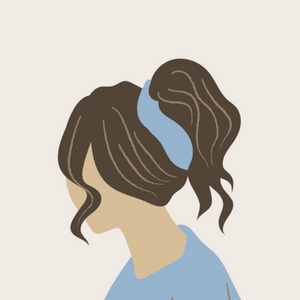
Learning With Angie is a place to share honest, unfiltered advice to promote student success. So if you’re a student (high school, college, or beyond) looking for tips on productivity, studying, personal growth, and more to reach your potential, this is the place! To read more about Learning with Angie, click here.

